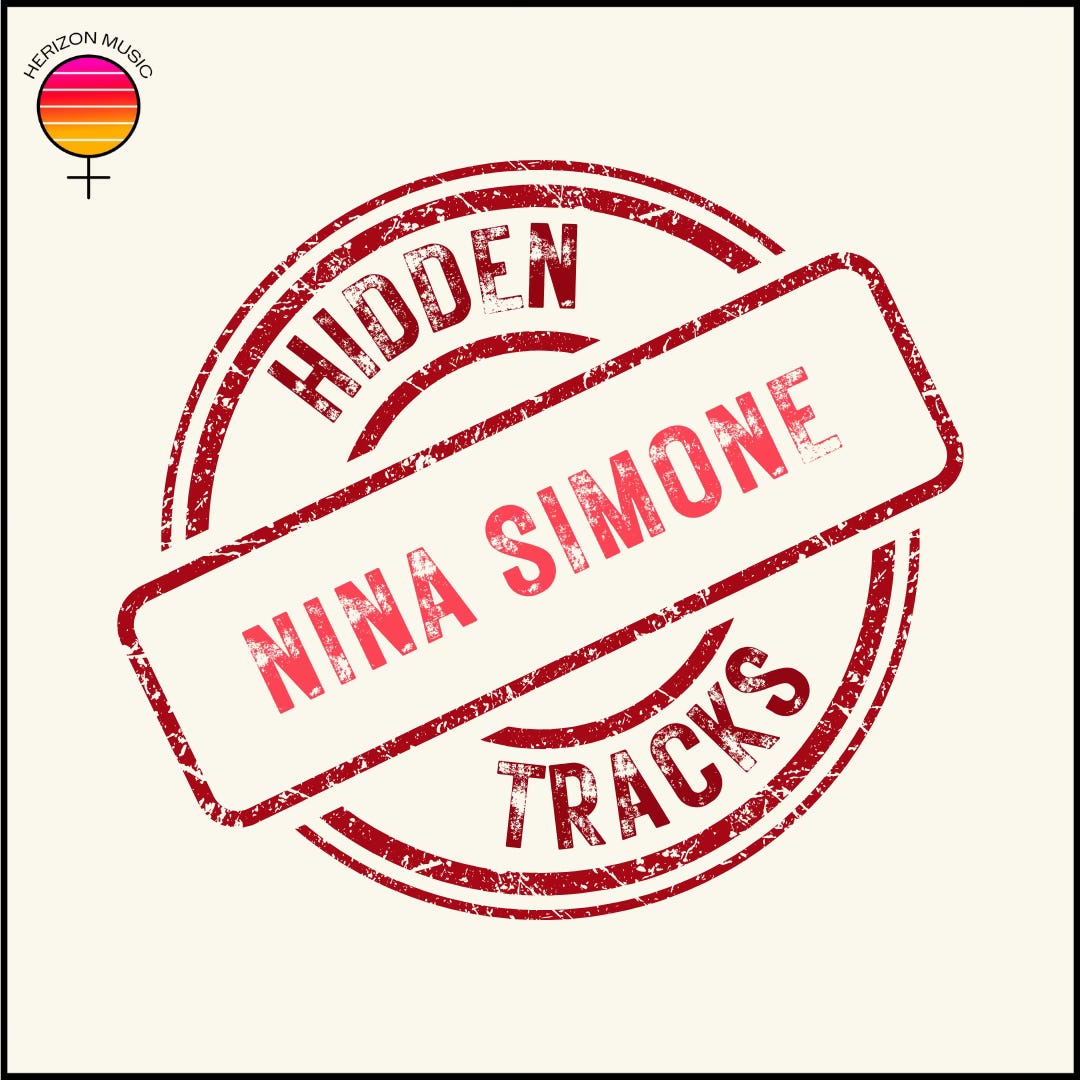Hidden Tracks: Nina Simone
Thugs and blind auditions
Welcome to another issue of the Hidden Tracks series, a premium collection of historical accounts about the dark underbelly of working as a woman in the music industry.
The series idea came after researching icons for my upcoming book First Ladies of Music, A Rockin’ Activity & Coloring Book (Fox Chapel) that launches in Spring 2025. The book is designed for educating and inspiring teens, but music fans of all ages will love the stories and values behind each icon.
The darker histories discussed in Hidden Tracks are not appropriate for the coloring book, but they still deserve to be heard. Only by sharing stories can we incite change.
UPGRADE HERE TO GET ACCESS TO PREMIUM CONTENT
Hidden Tracks: Nina Simone
Nina Simone was one of my book’s first featured icons because her life and career became purpose-driven in pursuit of racial and gender equity in the U.S.
“I’ll tell you what freedom is to me. No fear.” — Nina Simone
As with Judy Garland and other women I’ve researched, abusive and/or exploitive men are plentiful when it comes to stories about talented women in the music industry. From Garland and Bessie Smith to Cher and Tina Turner to Aretha Franklin, the men who signed up to support these women often turned out to be their worst enemies.
Simone (born Eunice Kathleen Waymon in 1933) grew up outside of Ashville, NC in a religious family. By age three, Simone could hear a tune on the radio and play it on the piano. Her natural talent became her daily six-hour exercise after school. Acting out would result in the receiving end of a switch. The other kids had a hard time relating to Simone’s musical genius and academic drive, so she often felt lonely and misunderstood.




